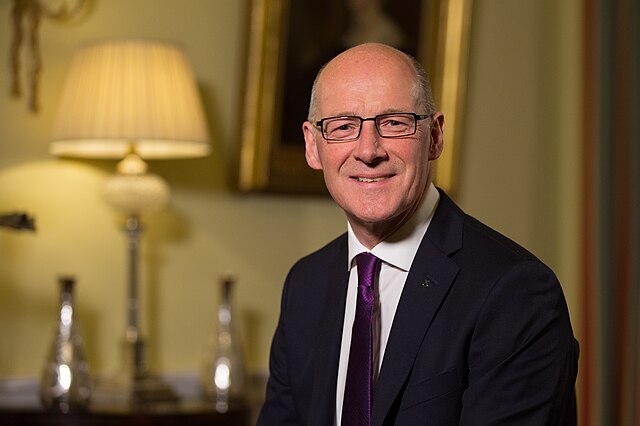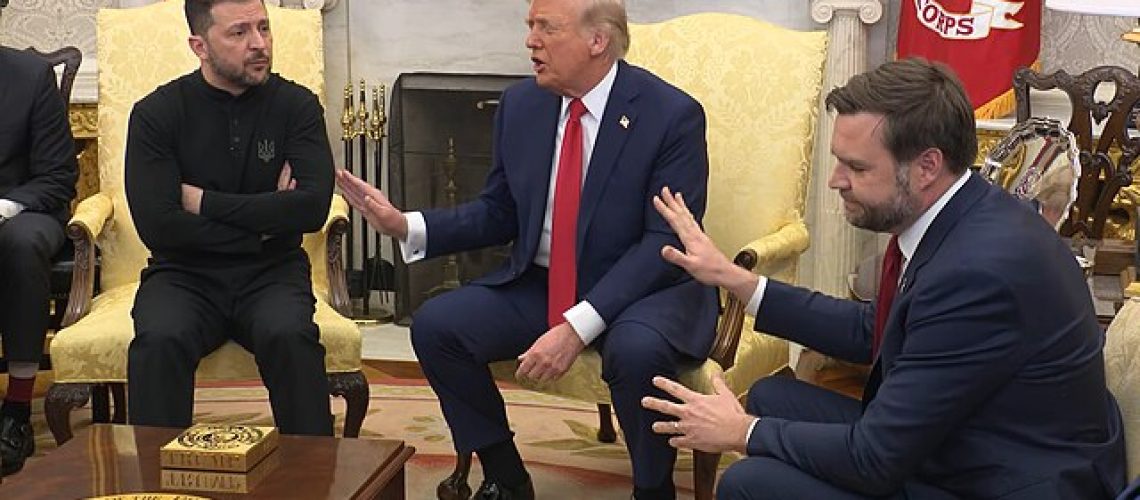The new American regime presents Europe with a choice, and as we Scots are bound to Britain, so too are we bound to the dilemmas of European security. We are thrust into a new era and so we must be able to take stock of the possibilities and dangers which lie in wait amidst the struggle for an independent, socialist scotland. Two particular events have called into question the present geopolitical order and forced to surface long standing anxieties and tensions present in the trans-atlantic alliance of Europe and America – J.D. Vance’s speech at the Munich Security Conference and the turn towards a potential detente with Russia by the Trump administration.
These two events demonstrated the radically differing views on the Russia-Ukraine War that Europe and Trump’s America have. With the former viewing Russia’s potential great power status and self-conception as an existential threat to both European security and the European geopolitical identity as a whole, and the latter viewing it as an issue which signifies the general burden that European interests place on the United States.
The two camps
The European response to the United States’ calls to become reliant upon itself for its own security and reduce its “dependency” have been varied but fall into two main camps. Both in some way are an “acceptance” of the new status quo implied by Vance’s speech and later comments by U.S. Secretary of State, Pete Hegseth: the death of transatlantic hegemony as it has existed since the collapse of the Soviet Union. The first camp, more closely aligned ideologically with Trump’s administration and with a greater tendency towards euroscepticism, both in its harder and softer variations, have welcomed the criticism cast at Europe by Vance as harsh but necessary truths.
The second camp views this shift away from American guarantees of security and turn towards Russian detente as a betrayal and abandonment of both the geopolitical and ideological interests of atlanticism, and a signal that Europe must now initiate a painful divorce from the US in order to pursue its own interests and formulate a new strategic doctrine. Part of this reaction has been resurrecting the idea of a common european army, a notion which in the 21st century appears every time there emerges a percieved threat to the existing european order, most recently being floated in the aftermath of Russia’s annexation of Crimea, and again after Brexit.
One of the greatest proponents of this perspective has unsurprisingly been Zelenskyy, who has in particular been using this as an opportunity to reiterate Ukraine’s rightful place among Europe and its importance to the development of an “independent” Europe and a common army. However this comes after the declaration, dispute earlier signals to the contrary, Ukraine is guaranteed no place in NATO after fighting has ceased, a demand which Zelenskyy has consistently issued as part of a condition for victory and a workable post-war settlement.
The fallout
After the initial shock, Starmer and Macron have been attempting to in some way salvage the present arrangement and ensure Ukraine acts as an effective buffer against potential Russian aggression through the implementation of an “American backstop,” whilst a European “coalition of the willing” serves as the primary peacekeeping forces, bolstering the Ukrainian armed forces.
This is complemented by a call by Starmer for Europe to “take leadership of NATO” in this endeavour and to pursue a process of continental rearmament. Clearly Starmer and other European leaders are not yet ready to accept a withdrawal of the US either from Ukraine or from holding Europe a geopolitical centre of gravity, however they now have started placing defense spending and security at the forefront of their concerns, at the potential cost of both international soft power and domestic concerns.
This has been most clearly demonstrated in Starmer’s decision to pursue an increase of defense spending to 2.5% of GDP by 2027 (with a goal of 3% by the next parliament) accompanied by major cuts in aid to vulnerable populations in the UK. In either the attempt to advance an independent Europe or in maintaining the special relationship to the United States, Starmer’s Britain will be a Fortress Britain; militarized, imperialist, and committed to the preservation of Britain’s role in western hegemony, be it led by Europe or the United States, unconcerned with the growing pressures of poverty on its most vulnerable residents.

This brings us to the question, what about Scotland?
Given our status as a nation currently subordinate to the international agenda of the British State, very few have expressed an explicit role for Scotland in this changing world. Beyond a few comments from First Minister John Swinney about his enthusiasm for Starmer’s “coalition of the willing”, and a desire to do everything that is needed to support Ukrainian success. This falls in line with the SNP’s vision of independence which keeps Scotland in NATO and committed to the EU’s Common Defense and Security Policy. Scotland already plays host to key pieces of British and NATO defense infrastructure including Britain’s Trident program, with an increase of American military presence in Scottish military bases over the last three years.
As regards the former, the SNP remains opposed to the presence of nuclear weapons as a part of independence. However, no real outcry has been issued against the potential use of Scotland as a staging ground for NATO. Although this has occurred before the USA’s pivot away from Europe, it nonetheless demonstrates the willingness of the Scottish ruling class and political elite to offer Scotland up to whatever hegemonic power wishes to use it.
Even if Scotland is independent, what guarantees do we have that an SNP will continue to oppose hosting nuclear weapons? Given the concessions the party has already granted to a militaristic agenda and their current support for a re-armed Europe. In order for Scotland to be truly independent, not a tool for neither American nor British interests or an arm of western imperialism, it must disengage from these security frameworks. A truly socialist and internationalist Scotland must not only evade the target that being a key logistical link of western militarism places on its back, but strike a blow to it by refusing to be used as a weapon to its enemies and a tool of its interests.








